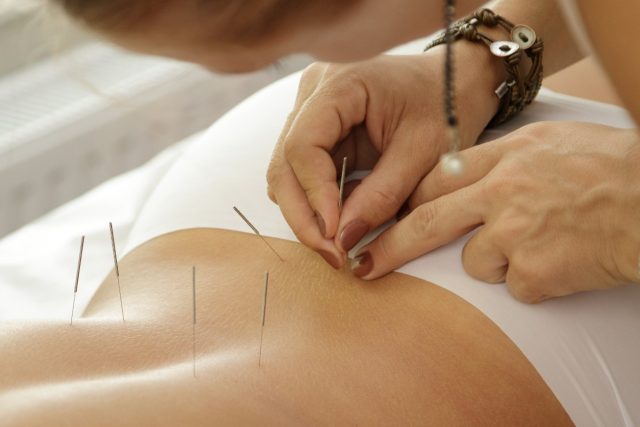Greater improvement seen for acupuncture versus sham acupuncture in mean modified Roland–Morris Disability Questionnaire score
By Elana Gotkine HealthDay Reporter
TUESDAY, July 9, 2024 (HealthDay News) — For patients with degenerative lumbar spinal stenosis (DLSS) and predominantly neurogenic claudication pain symptoms, acupuncture may relieve pain-specific disability, according to a study published online July 2 in the Annals of Internal Medicine.
Lili Zhu, M.D., from the China Academy of Chinese Medical Sciences in Beijing, and colleagues conducted a multicenter randomized clinical trial in five hospitals in China involving patients with DLSS and predominantly neurogenic claudication pain symptoms. Over six weeks, patients received 18 sessions of acupuncture or sham acupuncture (SA; 98 in each group). Patients were followed for 24 weeks after treatment.
The researchers found that the mean modified Roland–Morris Disability Questionnaire scores were 12.6 and 12.7 in the acupuncture and SA groups, respectively, at baseline and decreased to 8.1 and 9.5 at six weeks, with an adjusted difference in mean change of –1.3, indicating a 43.3 percent greater improvement for acupuncture versus SA. At six weeks, the difference between groups in the proportion of participants achieving minimal and substantial clinically meaningful improvement was 16.0 and 12.6 percent, respectively. Three cases of treatment-related adverse events were reported in each group; all were mild and transient.
“Acupuncture may relieve pain-specific disability among patients with DLSS, although the difference compared with SA did not achieve the minimal clinically important difference,” the authors write. “Further research is needed to investigate the effect of acupuncture on the walking capacity of patients with DLSS using nonpenetration needling as sham control.”
Copyright © 2024 HealthDay. All rights reserved.



















